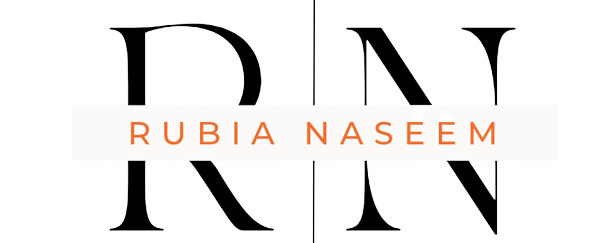More than 40% of employees feel that they waste nearly a quarter of their week doing repetitive work. That’s exactly where workflow automation comes into the picture.
Yet over 70% of companies haven’t implemented automation workflow processes in their companies. The reason? With hundreds of options available, they are unaware of where to start.
And if you belong to this group, then I am writing this blog, especially for you!
Here, I am going to talk about the top 9 workflow automation tools, both free and paid options, (as per my opinion), their features, pros, cons, and more to help you make the decision.
So, let’s get started!
What exactly describes a good Workflow Automation Software?
Great software should streamline and enhance the business process by automating tasks, data, and communication. In short, it should simplify complex workflows, increase productivity, reduce manual errors, and empower businesses to focus on value-added activities.
A few features that describe a great tool are
Integrations
A good tool should let you operate all the business processes in one place. For example, it should integrate and connect the documents, reports, contact info, and emails from your CMS, calendars, and other tools.
Automation
Repetitive tasks are one of the major reasons why companies are opting for automation systems. Therefore, this is one of the main features that you need to look into. For example, once the task is done, the software should automatically either be able to carry on to the next stage or notify the person who is responsible for the next part of the task.
Customizable
Each company has its own set of working models and processes. A good workflow software will allow you to customise the process as per your requirements without the need for complex coding.
Visual
Not everyone is a pro at coding complex processes. And the workflow automation services should be easy enough to understand the process. A visually colour-coordinated workflow can make it easy to understand.
Reporting
Software with a detailed report can help you analyse the overall productivity of the business. And that can help you in better planning and managing tasks and projects.
Notifications
The workflow with a good tool shouldn’t feel time-consuming or manual work. The entire idea of the automation tool is that you do not need to follow up. That’s why the platform should be able to notify the members about the approval process or deadlines.
Top 9 Workflow Automation Tools
Now that you know the features that you need to look for, here are the top 9 options to choose from.
Zapier (Best for Software Integrations)
Zapier is one of the most popular platforms and for a good reason. It offers a range of features at a very reasonable price. Along with it, this tool is also famous for its ability to integrate almost all applications without any extra charges.
This workflow automation tool uses a drag-and-drop editor without any need for coding expertise. You can automate everything right from single-step repetitive tasks to a complex workflow with this software.
As I have mentioned earlier, Zapier allows over 5,000 app integrations including Gmail, Slack, Trello, Stripe, Facebook, Mailchimp, etc. In short, you can fully automate all your business processes with Zapier.
Pros
- Over 5,000 software integrations
- Free plan for single-step automation
- 14-days free trial
- Up to 100 steps per workflow
Cons
- Premium apps are available only on top-tier plans
- Limited automation on low-tier plans
- No non-automation tools
Price
Zapier offers a free version for individuals needing automation. It also offers a 14 days free trial for all the paid plan options.
The basic starter pack starts from $19.99.
Monday (Best for Visualisation)
This award-winning workflow automation software can help your team of any size in planning, managing, and executing tasks efficiently.
Monday.com is also a no-code/low-code software that is easy to implement. And you can get started with the 200+ ready-to-use templates that can help in tracking and completing tasks easily.
The plus point of this platform is the visual and intuitive interface that allows your team members in creating project plans, assign tasks, set dependencies, communicate, and share files in real-time.
This automation tool is a perfect solution to manage everything right from simple tasks to complex workflows. Plus, it is equally suitable for in-house team members as well as remote workers.
Pros
- User-friendly interface
- Data visualisation
- Visual timeline
- Time tracking
Cons
- Steep learning curve
- Maybe too complex for smaller teams
- Mobile app needs more features
Pricing
Monday.com offers a free version for up to 2 seats. It also offers a 14 days free trial for all the paid plan options. The basic starter pack starts from $8/seat per month.
ClickUp (Best for Built-In Project Management Tools)
The best way to describe ClickUp is an all-in-one project management tool that can help in streamlining workflows, enhancing collaboration, and staying on top of the project execution.
It has powerful project management features, the option to customise, and a wide range of collaboration tools making it a great solution.
The plus point of this tool is the customisable views, custom tags, and real-time collaboration with mentions, comments, and shared calendars.
Pros
- Various customisable views such as boards, lists, and calendars
- Custom fields and tags creation
- Easy functionality for all business processes
Cons
- Offers limited integration tools
- Takes time to get used to it
- Can be more complex to use compared to others
Pricing
ClickUp offers a free version for personal use.
The basic starter pack starts from $7/member per month.
Integrify (Best for Process Collaboration)
It is a two-decade-old platform built to offer easy-to-use, low-code, flexible software with excellent support services.
Integrify is an enterprise-level software best suited for mid to large-sized businesses having a wide range of complex automation requirements.
Some of the top automation processes where you can use Integrify are IT service, security access, marketing campaigns, legal holds, management, employee onboarding, and many more.
Apart from this, the drag-and-drop feature for creating workflow and customisable options makes this tool one of the best in this list.
Pros
- Customisable
- Cloud and on-premise platform options
- Unlimited automation and actions
Cons
- A bit complicated to learn
- Opaque pricing
- Fewer native integrations
Pricing
Integrify offers a flexible subscription-based pricing model.
The subscription starts from $875 per month. You can call customer support to set up a free trial of the software.
Asana (Best for Team Collaboration)
It is a project management software that excels in collaboration, customisation, integration, and accessibility.
Asana enables multiple users, teams, and departments to assign ownership, share content, send files, combine work, receive updates, and build cross-functional workflows making it perfect for team collaboration.
This automation platform provides an accurate view of work progress towards a goal making it easy to track the status of the workflow. In fact, you can also get reports in minutes using the real-time feature that helps in better visibility for associated teams.
The plus point of this software is the ease of automating recurring tasks, having multiple views, mass updates, and good support on mobile apps.
Pros
- Ability to collaborate on multiple home projects
- Creating subtasks to stay on track
- User-friendly interface
Cons
- Limited customisation
- Limited reporting capabilities
- Pricing can get expensive
Pricing
Asana offers a free basic version for individuals and teams just starting with automation. It also offers a free trial for all the paid plan options.
The premium version starts from $10.99/user per month.
Kissflow (Best for Process Reporting)
It is a cloud-based automation software that enables you to streamline business operations, internal operations, and productivity.
Kissflow features a no-code platform empowering non-technical users for creating and managing workflows. You can use it for various business processes like vendor management, purchase order management, HR onboarding, project management, etc.
The plus point of this tool is the advanced analytics and reporting feature that helps you in tracking the progress and identifying areas for improvement.
Kissflow is also highly scalable and customisable. That means you can tailor the program to your business needs. And the scalability allows the automation software to work best in every environment irrespective of whether it is a startup or a large-sized company.
Pros
- Custom and pre-set reporting
- Great user-interface
- Highly customisable workflows
Cons
- 20 users minimum
- Limited mobile functionality
- Reported bugs with updates
Pricing
Kissflow offers a custom pricing model for the enterprise level. You can contact the support team to know more about it.
The basic plan starts from $20 per month.
Flokzu (Best for Creating Flexible Workflows)
It is automation software that helps you in creating custom workflows, run reports, automate processes, and integrate through APIs.
This is one of the most flexible workflow automation tools. With Flokzu, you can schedule custom reports, add substitutions for each task, set timers for task completion, monitor issues, and many more.
The standout feature of this software is that it includes many tools making it more flexible compared to other software.
In short, it is a beneficial tool if you are a small business owner as it is adorable and has some useful project management attributes.
Pros
- Integrates with Slack, Gmail, and many other such applications
- Cloud-based deployment
- Unlimited storage
Cons
- Less beneficial to large enterprises
- Few native integrations
- Slow customer support response time
Pricing
Flokzu offers a 14 days free trial for all the paid plan options.
The standard version starts from $17/user per month.
Jira Work Management (Best for Task Management)
It is a popular management tool ideal for the developer team – thanks to its feature set and integration capabilities that allow for effective Agile software development.
Jira provides data-driven insights that help the product owners and members of the team to improve projects and keep track of the goals.
You can also prioritise the development tasks in this tool from the most urgent ones to the least so that the team understands the priorities.
Jira also features real-time reporting on the dashboards, third-party integrations, and search functionalities for quick turnaround.
Pros
- Seamless integration with other applications
- Live dashboards
- Large community that provides support
Cons
- User interface can get confusing
- Need technical expertise for setting up
- Uses too many features causing complexity
Pricing
Jira offers a free version for up to 10 users. It also offers a 7 days free trial for all the paid plan options.
The standard pack starts from $5/user per month.
Wrike (Best for Hybrid/Remote Work)
It has a top-tier collaboration feature that makes this tool a great choice for balancing in-house, hybrid, and remote members.
You can share files, reports, and tasks with this tool and get full visibility of task lists and progress across multiple departments in real time. You just need to zoom in and out of the workflow chart with customisable dashboards.
The plus point of this workflow automation is the impressive integration of more than 400 applications making it easier to connect your workflow to the platform.
In short, Wrike unites all work and everyone in a single platform that eliminates complexity, increases productivity, and helps in concentrating on important tasks.
Pros
- Offers complete visibility in multiple views
- Improves real-time collaboration
- Can build custom dashboards
Cons
- Steep learning curve
- Slow while uploading or downloading files
- Lack of filtering options
Pricing
Wrike offers a free basic version for individuals and teams just starting with automation. It also offers a free trial for all the paid plan options.
The premium version starts from $9.80/user per month.
To Sum Up
Here you have it! My take on the best platforms that offers workflow automation services.
Confused about which one to pick? The best solution is weighing the features, pros, cons, and mainly your budget for finalising software. Also, while at it, do not forget to calculate the time you have at hand to learn a new tool.
If you prefer beautiful visual boards, then Monday.com is the right choice for you. But if you want to focus on collaboration between teams and automation for hybrid and remote workers, then Asana or Wrike will be the tool for you.
While you are deciding on it, take a look at how you can automate a marketing strategy in your next campaign using these workflow automation software tools.
FAQs
Why is workflow automation important?
Workflow automation is crucial as it streamlines processes, reduces manual interference, and minimizes errors, leading to better productivity. By automating repetitive tasks and arranging complex sequences, businesses can focus their resources on more productive and important matters.
What are the disadvantages of automation?
Though there are huge benefits of automation, there are a few downsides to it too. It offers lesser flexibility when you compare it to manual operation. Plus, not everyone can handle working with the software. You may also need to hire a tech-savvy person to get started with the automation process.
What is an example of an automation workflow process?
Let’s take an example of automating customer onboarding. When a new customer signs up, the workflow automation software triggers an email sequence welcoming them, sends a follow-up survey to gather preferences, and creates a task for the sales team to reach out personally. As the customer progresses through the onboarding steps, the software updates CRM records and generates alerts for any required actions, ensuring a seamless and personalized experience.



![How to master lead management automation [based on my 15 years exp]](https://rubianaseem.com/wp-content/uploads/2024/08/Blue-White-Modern-Marketing-Blog-Banner-4-768x432.webp)


